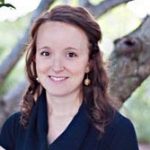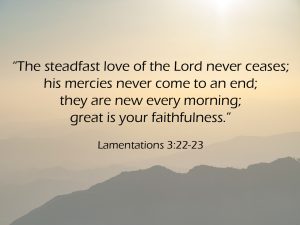First Forgiveness
 I had broken the cardinal rule of the firstborn child, and I still remember walking to my mom’s car feeling the downward tug of dread and disappointment. I had gotten my name on the board of Mrs. Fanny’s kindergarten class, having been caught in the act of exchanging one too many comments and giggles with a classmate. For as long as I can remember, I memorized rules and expectations, trying so carefully to stay within the parameters set for me by the adults in my world. I am sure that my five year old awareness of failure and shame was much heavier than the disappointment my parents felt, but it was real to me. And so I spilled tears and confessions to my mom in the car line and sent myself to my room when we arrived home. I waited for my dad to come home from work.
I had broken the cardinal rule of the firstborn child, and I still remember walking to my mom’s car feeling the downward tug of dread and disappointment. I had gotten my name on the board of Mrs. Fanny’s kindergarten class, having been caught in the act of exchanging one too many comments and giggles with a classmate. For as long as I can remember, I memorized rules and expectations, trying so carefully to stay within the parameters set for me by the adults in my world. I am sure that my five year old awareness of failure and shame was much heavier than the disappointment my parents felt, but it was real to me. And so I spilled tears and confessions to my mom in the car line and sent myself to my room when we arrived home. I waited for my dad to come home from work.
The afternoon dragged on, but I finally heard my dad’s car pull into our garage below my bedroom. This was the first time I can remember really getting into trouble, and I knew, I just intrinsically knew, that something awful waited for me in the conversation I was about to have with my father. Within a few moments, he knocked at my bedroom door, and he smiled and came and sat down where I had been trying to play (but mostly worrying), on the floor. He asked me to tell him what happened at school, but he did not seem angry or shocked. He told me he was sad about the choice I had made, but that he was grateful I was honest with my mom and him, and then he did the last thing I expected. He gave me a gift; a music tape of The Wizard of Oz, which I’d had my eye on for months, and which he had purchased for me on his way from work. Gifts were not casual or given often in our home, aside from birthdays and Christmas, so I realized what the gift meant. Guilt and fear gave way to acceptance, and I knew that I was no longer marked by my mistake, but was known and safe. This is my first tangible memory of an act of grace in my life; the first confidence of being forgiven.
I am struck by the generosity my dad offered me in that moment, truly the generosity of any act of forgivenss. The choice to relinquish my raised and clenched fist, to drop my demand for justice, has at times felt risky to the point of foolishness. It feels like death to give up my desire to understand, or my need to fix or set right what was broken. At times it has been frightening to take in the cost of someone else’s sin without demanding he or she pay. But the cost involved in the act of releasing someone always pales in comparison to the freedom that comes as I do.
For a long time I struggled under a weight of feeling like I couldn’t forgive people. I have obviously worked hard in the years beyond kindergarten to ensure I that I would not get into a place where I needed forgiveness from God or anyone else. I ran from my humanity and demanded the same of others. Finally, a few years ago, I latched on to author Paula Rinehart’s description of forgiveness as one difficult and significant choice to release someone who has hurt you over to God, followed by hundreds of small choices to do this again and again, as memories, anger or pain return.
Something inside of me gradually relaxed; the act of surrendering more than just once as memories and other human emotions came to me, felt both feasible and liberating. Now I am seeing that forgiveness is both costly and the most freeing thing for me to do. The disruption, the breaking that comes from betrayal, the hiding and blaming are real. Some harm may never be made right in my eyes this side of heaven. Even still, forgiving frees me to be human, to not be the ultimate judge of peoples’ hearts, and to not play the role of God for someone else. The only reason this can happen is that the deeper cost for the sin has already been absorbed, is being felt, experienced and dealt with in real time by Jesus. All will be addressed when we meet the Father face to face. For my life here, until I am home, I hope I have the joy of seeing another’s face soften in relief and acceptance as I give them this unexpected, undeserved gift.
 Meredith Spatola joined The Barnabas Center on staff in January 2009, upon completing her Masters in Counseling from Gordon-Conwell Theological Seminary and her bachelors in Religion and Psychology from Furman University. She counsels, leads women’s groups and teaches a seminar called “Hope in the Darkness” for those walking with individuals suffering from depression or bipolar disorder. Meredith, her husband Jon, and daughter Charlotte live in Rock Hill, SC.
Meredith Spatola joined The Barnabas Center on staff in January 2009, upon completing her Masters in Counseling from Gordon-Conwell Theological Seminary and her bachelors in Religion and Psychology from Furman University. She counsels, leads women’s groups and teaches a seminar called “Hope in the Darkness” for those walking with individuals suffering from depression or bipolar disorder. Meredith, her husband Jon, and daughter Charlotte live in Rock Hill, SC.









1 comment
Great blog post Meredith. Thank you for sharing this!